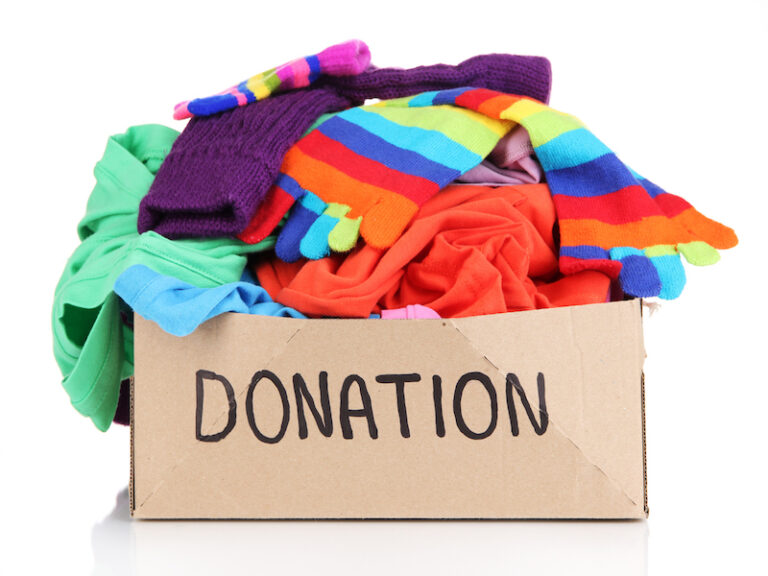Ah, the never-ending tidal wave of “stuff”! If you’re a parent in Hong Kong, you know exactly what we’re talking about. Our compact living spaces fill up startlingly fast. One minute you’re unpacking tiny onesies and essential baby gear, the next you’re tripping over outgrown ride-on toys and wondering where on earth to store the ever-expanding collection of Lego bricks and school projects. As children grow and our lives evolve, so does the mountain of possessions. The kids’ wardrobe needs a seasonal clear-out, the crib makes way for a big-kid bed, and sometimes, a flat move means furniture simply doesn’t fit anymore. What do you do with all this pre-loved clutter?
Tossing perfectly good items feels wasteful. Fortunately, Hong Kong offers meaningful solutions. Donating your gently used belongings isn’t just about reclaiming space; it’s about supporting others in need and embracing sustainable living in our busy city. Many individuals and families in Hong Kong can benefit immensely from items you no longer use. Ready to transform your clutter into kindness? Let’s explore how to donate your unwanted items responsibly and effectively in Hong Kong.
Why Decluttering and Donating Matters in Hong Kong
Living in Hong Kong often means navigating limited space. Every square foot counts. Holding onto items that are no longer needed not only creates physical clutter but can also add to mental stress. A thorough decluttering session can feel incredibly liberating.
But decluttering isn’t just for your own benefit. It’s an opportunity to contribute positively to the community. Charities and non-profit organizations in Hong Kong work tirelessly to support vulnerable populations, including low-income families, refugees, asylum seekers, and those facing various crises. Your donation of a warm coat, a sturdy piece of furniture, or essential baby supplies can make a tangible difference in someone’s life. It’s a powerful way to practice generosity and reduce waste simultaneously.
Getting Your Items Ready for Donation
Before you haul everything out, a little preparation goes a long way. Charities often have limited resources for cleaning or repairs. Donating items that are clean, functional, and in good condition ensures they can be passed on directly to someone who needs them.
Here’s a quick checklist:
Clean It Up: Wash clothes and linens. Wipe down furniture and toys. Clean electrical appliances.
Check Condition: Ensure items are free from significant stains, tears, or damage. Furniture should be stable and usable. Electronics should be in working order. Ask yourself: Would I feel comfortable receiving this item?
Sort and Categorize: Group similar items (e.g., baby clothes by size, books by type). This helps the charity process your donation more efficiently.
Pack Smartly: Use sturdy boxes or bags. Label boxes clearly if they contain specific items (e.g., “Boys Clothes – Size 4-5,” “Kitchenware”).
Check Needs First: Before dropping off or arranging pickup, always check the charity’s current “wish list” or specific needs. Their requirements can change based on season or demand. Donating items they currently need is the most effective approach.
Example: Instead of just bagging up a mix of baby gear, take the time to wash those outgrown bodysuits, check the stroller wheels are functional, and ensure the high chair straps are clean. Pack the clothes separately by size and label the bag. This small effort ensures the charity can quickly get these essential items to a family who needs them immediately.
Where to Donate Gently Used Items in Hong Kong
Many reputable organizations in Hong Kong welcome donations of pre-loved goods. They have different needs, logistics, and focus areas, so choosing the right one for your items is key. Here are some options, based on community recommendations and established services:
Crossroads Foundation
Crossroads is a well-known international non-profit based in Hong Kong that acts as a bridge between need and plenty. They receive quality donated goods and redistribute them to people in need locally and internationally.
Needs: A wide range of items! They accept home furniture, office/school furniture, household goods (kitchenware, decor), toys, clothes, and electrical items. Check their latest needs list online.
Logistics: They use an online delivery form (crossroads.org.hk). Donors are asked to deliver items themselves or arrange transport. They have a large facility for receiving goods.
Contact: 2984 9309
St. James’ Settlement
A long-standing local charity serving various community needs. St. James’ Settlement accepts specific types of donations to support their programs.
Needs: They typically accept furniture, electrical appliances, second-hand ladies clothes, and books.
Logistics: They manage donations through specific departments. You need to call the relevant number for the item type you wish to donate to arrange pick-up or delivery.
Contact: Main line: 2574 5201. Specific lines: Furniture: 8226 9211, Electrical: 2795 7038, Clothes: 2831 3204, Books: 2835 4368. (Please verify these numbers as they may change).
Ronald McDonald House Charities Hong Kong
Ronald McDonald House provides a temporary “home away from home” for families with seriously ill children receiving treatment in nearby hospitals. Their needs are very specific to supporting these families directly.
Needs: Their “Wish List” is crucial here. It focuses on items families staying at the House need, such as rice, healthy food items, household goods, cookware, and office supplies. They do not typically accept general used clothes or furniture.
Logistics: It is essential to call them before making any donation to check their current needs and arrange drop-off.
Contact: 2947 8778 (rmh.org.hk)
PathFinders
PathFinders supports vulnerable pregnant migrant women and their Hong Kong-born children, who often arrive with very little. They have critical, specific needs for maternal and infant care.
Needs: High-priority items include newborn and children’s clothes, baby blankets, baby carriers, slings and wraps, diapers (a constant need!), pushchairs/strollers, formula, and maternity clothes.
Logistics: Items must be dry, clean, and in good condition. Include your contact details in each bag or box. They have specific drop-off locations:
PathFinders Office: Unit 2D, Worldwide Centre, 123 Tung Chau Street, Tai Kok Tsui, Kowloon.
Volunteer’s Home: 8/F Horizon Mansion, 104 MacDonnell Road, Mid-Levels (Leave with doorman anytime).
Contact: 5500 5486 (WhatsApp helpful) (pathfinders.org.hk)
Christian Action
Christian Action runs various programs supporting disadvantaged groups, including refugees, ethnic minorities, and low-income families. They accept a broad range of donations for their community support and social enterprise initiatives.
Needs: Clothes, accessories, stationary, books, toys, baby items, new bedding, carpets, electrical items, and small household appliances. Note the specific requirement for new bedding.
Logistics: Call to arrange pick-up. Pick-up is generally available for buildings with elevator access. A fee ($60 was noted previously, please confirm current rate) may be charged for smaller quantities (e.g., less than three bags).
Contact: 2456 2220 (christian-action.org.hk)
The Salvation Army
The Salvation Army is a widely recognized charity with drop-off points across the city, making it convenient for many donors. They use donated items in their programs and sell them in their Family Stores.
Needs: Clothes, electrical home appliances, office equipment, toys, stationary, and books.
Logistics: Donations are accepted at Salvation Army stores and various recycling bins located throughout Hong Kong. Pick-up for large quantities can also be arranged by calling.
Contact: 2332 4433 (salvationarmy.org.hk)
Vision First
Vision First is a human rights organization supporting refugees and asylum seekers in Hong Kong, who often live in precarious conditions with minimal support.
Needs: High-demand items include blankets and bedding, winter clothes, baby gear, diapers, formula, carriers, shoes, stationary, toiletries, phones, cameras, computers, dry food, and kitchen appliances. These are basic necessities often lacking.
Logistics: Donations must be delivered directly to the Vision First office in Sheung Wan. You need to email them to arrange a suitable time for drop-off.
Contact: WhatsApp: 9370 2039, Email: [email protected] (vfnow.org)
Other Avenues for Giving
Beyond the major charities listed above, Hong Kong has a vibrant community scene with other ways to pass on items:
Community Groups: Look for local Facebook groups (like Hong Kong Moms itself!), WhatsApp groups, or building notice boards where people often offer items for free to neighbors. This is great for quick rehoming of smaller items.
Specific Initiatives: Some smaller groups or temporary drives pop up for specific needs (e.g., school supply drives, winter clothing collections). Keep an eye out for these opportunities.
Second-Hand Bookstores: Places like Flow Books might purchase or take certain books.
Furniture Resale/Donation Groups: Groups like DB Mothers & Friends specialize in collecting and distributing furniture and larger items, often focusing on specific areas or types of goods. (Check their specific operating model).
Remember to always verify the current needs and donation process with any organization before making your donation. A quick call or check of their website ensures your generous gift reaches those who need it most efficiently.
Other resources links:
Making Donation a Habit
Incorporating donation into your regular routine makes the “stuff” problem less overwhelming. Try a seasonal clear-out, perhaps before Chinese New Year or the summer holidays. Get the kids involved! Teaching them to choose toys or clothes to donate helps them understand the value of giving and contributes to a tidier home.
Decluttering and donating is a continuous process, especially with growing children. It requires effort, particularly in a city like Hong Kong where transport and logistics can be challenging. However, the positive impact – on your home, the environment, and the lives of others – is immeasurable.
Conclusion
Navigating life with children in Hong Kong’s dynamic environment means constantly managing space and resources. Rather than letting unused items contribute to clutter, donating them offers a powerful way to give back and promote sustainability. By understanding the needs of local charities and preparing your donations mindfully, you ensure your pre-loved belongings find a new life with those who truly need them. So, open those closets, sort through that pile of toys, and make a difference today. Your clutter could be someone else’s treasure.
Frequently Asked Questions (FAQ)
Generally, items should be clean, functional, and in good, usable condition, free from significant damage, stains, or tears. Think: “Would I use this myself if I needed it?” Always check the specific charity’s guidelines.
Some charities, like Christian Action and The Salvation Army (for large quantities), may offer pickup, but there might be conditions (e.g., elevator access required) or a small fee involved, especially for smaller quantities. Crossroads and others often require donors to arrange delivery. Always call or check their website for their current policy.
Yes, several organizations like Crossroads and St. James’ Settlement accept furniture. However, space and transport are logistical challenges. You will likely need to arrange delivery yourself or pay for a pickup service if offered. Ensure the furniture is sturdy and usable.
If you have a variety of items (e.g., baby gear, furniture, books), it’s often more effective to donate to organizations that specifically need those items. PathFinders needs baby items, while Crossroads takes a wider range including furniture. Check their needs lists and distribute accordingly for maximum impact.
Most charities prefer items in good, clean condition. Items requiring significant repair or cleaning may not be accepted due to limited resources. For textiles that aren’t suitable for donation, look for textile recycling points instead.
The best way is to check the charity’s website, social media, or call them directly. Many organizations, like Ronald McDonald House and Vision First, maintain specific “wish lists” that are updated regularly.




